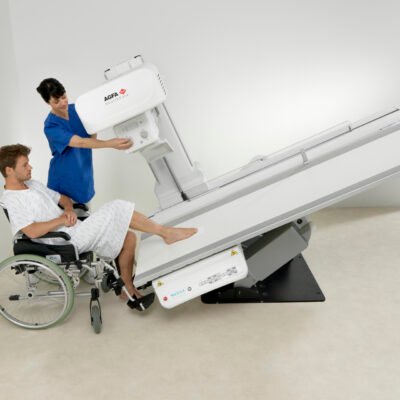China’s Top Medical Schools
China’s medical colleges have grown in popularity over the past few decades for a variety of factors. Students from all over the world are converging to enroll in Medical Universities in China as a result of the country’s recent advances in medicine and the WHO’s recognition of their institutions. You can utilize the diploma you receive from your education in China to practice medicine there if you so want, but you will be free to do it anywhere in the globe.
There are a few more advantages to the Chinese educational system as well:
It is simpler for many people to enroll in Chinese medical schools because the initial entrance standards are lower than in other nations.
For international students, living is generally a lot more affordable and comfortable.
Everyone who wants to study and advance is welcomed, and they are more than willing to accommodate them.
All things considered, attending medical colleges in China is a terrific option to earn a degree that will be recognized internationally, cost less money, and allow you to stay current with medical research and hospital treatment.
Additionally, see China’s Universities with the Highest Acceptance Rates.
Can foreign students enroll in Chinese medical schools?
Yes. International students have been able to enroll in Chinese medical institutions since 2006.
Prior to this, there had never been any discussion about the prospect of having foreign students study in China, especially given that every course was in Chinese. Since then, a lot of universities have started offering courses taught in English in response to this new development. Although the institution occasionally requires students to learn Chinese, they do so because they have excellent instructors.
Over 45 institutions now offer this option after it opened the door to new and international students. It is advisable to conduct research before enrolling because some universities are only in it for the money and their English courses are subpar.
What kind of medical education is taught at Chinese medical colleges?
The five years required to get a bachelor’s degree in medicine in China are followed by an additional year of clinical rotations or internships during which students gain practical patient care experience. Most universities offer affiliated hospitals where students can complete an internship while being supervised by renowned medical professionals.
A diploma for a Bachelor of Medicine or Bachelor of Surgery (MBBS) is then awarded to the students.
In many Chinese medical schools, enrolling in the BDS program is an additional choice. Students who aspire to become medical dentists should read this. You can get a Bachelor of Dentistry and Dental Surgery diploma after completing this 5-year program, which also includes an internship.
Some colleges provide a specialization that requires 3 years of Master’s study for those who choose to continue their education.
The best 7 medical schools in China are listed here. There are numerous schools to pick from, based on the location, admissions process, and prerequisites needed.
China’s Top Medical School
1. Medical Program Page of Peking Union Medical College
Since its founding in 1917, Peking Union Medical College has been regarded as one of China’s top medical institutions. This institution offers an eight-year program leading to an M.D. degree. They welcome international students and have a vast infrastructure to guarantee the greatest instruction.
This college provides:
Program Search for Foreign Students
graduate studies
Clinical Medical School
University of Nursing
They are one of the more stringent when it comes to enrollment, but this will result in more carefully chosen groups and the highest caliber of education. You should probably choose this institution for your future study because it is one of the oldest and most reputable in the country.
University of Nanjing Medical
One of the top medical universities in China, Nanjing Medical University, was established in 1934 and became one of the first institutions to offer a 6-year medical degree in 1962. This incredible university boasts more than fifty teaching hospitals, twenty-four allied hospitals, and 22 schools.
Foreign students are able to participate in the program, but in order to graduate, they must master one of the school’s required disciplines, Chinese. In one of their affiliated hospitals, they provide a wealth of first-hand exposure and an excellent learning opportunity.
Capital University of Health
In Beijing, Capital Medical University was established in 1960. This top university, which is located in the nation’s capital, has outstanding faculty, a stellar reputation for its research facilities, and a six-year MBBS curriculum.
All foreign students are welcome, and they have collaboration agreements with more than 50 universities. Their program consists of a 1-year foundation, a 2-year basic medical education, a 2-year clinical medical education, and a 1-year internship.
Capital Medical University is not only a fantastic choice for a university but also a place where you may gain a lot more experience.
In addition, Shanghai Medical College of Fudan University
Dr. Fuqing Yan created Shanghai Medical College in 1927, and it is one of the top universities in China. 10 academic fields, including Clinical Medicine (8 years), Clinical Medicine (5 years), and Clinical Medicine (6 years, taught in English), are available for the bachelor’s degree program.
The current administration of this Chinese medical school is in place to guarantee that you receive the proper instruction, training, and possibilities for learning and development. They have nearly 6,000 students, and The National Science Fund for Distinguished Young Scholars has recognized 22 of its instructors.
Tianjin Medical University
Tianjin Medical University, another prestigious medical school in China, was founded in 1951 and is quickly gaining international renown for its medical education, research, and competence. This university collaborates with more than 96 other universities in 24 different nations and regions.
10,300 students are studying a variety of subjects, including nursing, pharmacology, clinical medicine, and fundamental medicine. Every year, this university accepts more than 200 international students from ten different nations. Although the majority of students join in the fall, some choose to study Chinese earlier. It is one of the top locations for multicultural education.
Chinese Medical University
China Medical College was established in 1958 and became a university in 2003. They rank among Taiwan’s top institutions of higher learning. They provide a wide range of instructional resources, course options, and research opportunities.
By incorporating Western science while preserving some aspects of traditional Chinese medicine, like Chinese herbs, they are attempting to modernize Chinese medicine.
With the goal of creating children who are well-rounded, empathetic, and capable of performing in the future, they are providing more than just education. Education: compassion, caution, diligence, and integrity, to quote their motto.
Zhejiang University
Established in 1897 as Qiushi Academy, Zhejiang is one of China’s oldest medical schools. Its slogan, “Seeking Truth,” is one of the most straightforward but hospitable. After making significant progress, this university was named one of the top 100 in the world in 2017.
Locate Open Programs for Foreign Students
For a school that has been established for so long, they seem incredibly modern and are leading via innovation. They offer amazing study and research programs and stay up-to-date with technology.
More than 62,000 students attend this distinctive university, including scholars from 140 different nations who are studying abroad.
Although the medical field has long been viewed as honorable, it is now more important than ever for societal well-being. In terms of medical education and healthcare, China is quickly rising to the top. The fact that they are prepared to integrate new and modern medicine is not surprising given their ancient and distinctive healing ideologies.
China’s universities are quite diverse, and they are very open to cooperation and international students. For the benefit of overseas students, they even provide a variety of scholarships. They are constructing a truly remarkable health system that will support not only Chinese hospitals but also healthcare globally.





